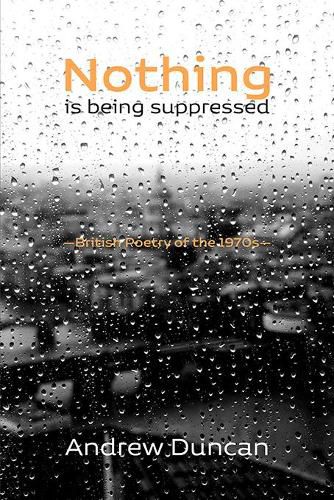Readings Newsletter
Become a Readings Member to make your shopping experience even easier.
Sign in or sign up for free!
You’re not far away from qualifying for FREE standard shipping within Australia
You’ve qualified for FREE standard shipping within Australia
The cart is loading…






This title is printed to order. This book may have been self-published. If so, we cannot guarantee the quality of the content. In the main most books will have gone through the editing process however some may not. We therefore suggest that you be aware of this before ordering this book. If in doubt check either the author or publisher’s details as we are unable to accept any returns unless they are faulty. Please contact us if you have any questions.
There are several reasons for writing about the Seventies at this point. One is a reading of a recent collection of memories of the decade by participants. My impression was that they couldn’t remember the period - too much time had gone by. They had lost all sense of differentiation and were writing about 1975 as if it was 2015. It is also possible that any attitudes of the previous time which didn’t chime with current positions were being written out, consciously or unconsciously. The extent of the mismatch is of great importance, I think. This suggested that there was a real problem with memory, justifying an account based on contemporary documents. The other problem with memory is that we are living in a splinter dictatorship, a cultural phase where the forces of convergence have stacked arms and opinions are split up into small groups. How can there be a collective memory when there is no single point on which all factions agree? so how can I record collective memory? in what sense is any statement about poetry true? But this argues even more for putting facts down and increasing the area free from malicious invention. We need to think about the divergence as a phenomenon in itself, a kind of cultural gravity that guides all the watercourses. The splintering allows local freedom at most locations - what it does not allow is unifying literary opinion. -Andrew Duncan
$9.00 standard shipping within Australia
FREE standard shipping within Australia for orders over $100.00
Express & International shipping calculated at checkout
This title is printed to order. This book may have been self-published. If so, we cannot guarantee the quality of the content. In the main most books will have gone through the editing process however some may not. We therefore suggest that you be aware of this before ordering this book. If in doubt check either the author or publisher’s details as we are unable to accept any returns unless they are faulty. Please contact us if you have any questions.
There are several reasons for writing about the Seventies at this point. One is a reading of a recent collection of memories of the decade by participants. My impression was that they couldn’t remember the period - too much time had gone by. They had lost all sense of differentiation and were writing about 1975 as if it was 2015. It is also possible that any attitudes of the previous time which didn’t chime with current positions were being written out, consciously or unconsciously. The extent of the mismatch is of great importance, I think. This suggested that there was a real problem with memory, justifying an account based on contemporary documents. The other problem with memory is that we are living in a splinter dictatorship, a cultural phase where the forces of convergence have stacked arms and opinions are split up into small groups. How can there be a collective memory when there is no single point on which all factions agree? so how can I record collective memory? in what sense is any statement about poetry true? But this argues even more for putting facts down and increasing the area free from malicious invention. We need to think about the divergence as a phenomenon in itself, a kind of cultural gravity that guides all the watercourses. The splintering allows local freedom at most locations - what it does not allow is unifying literary opinion. -Andrew Duncan